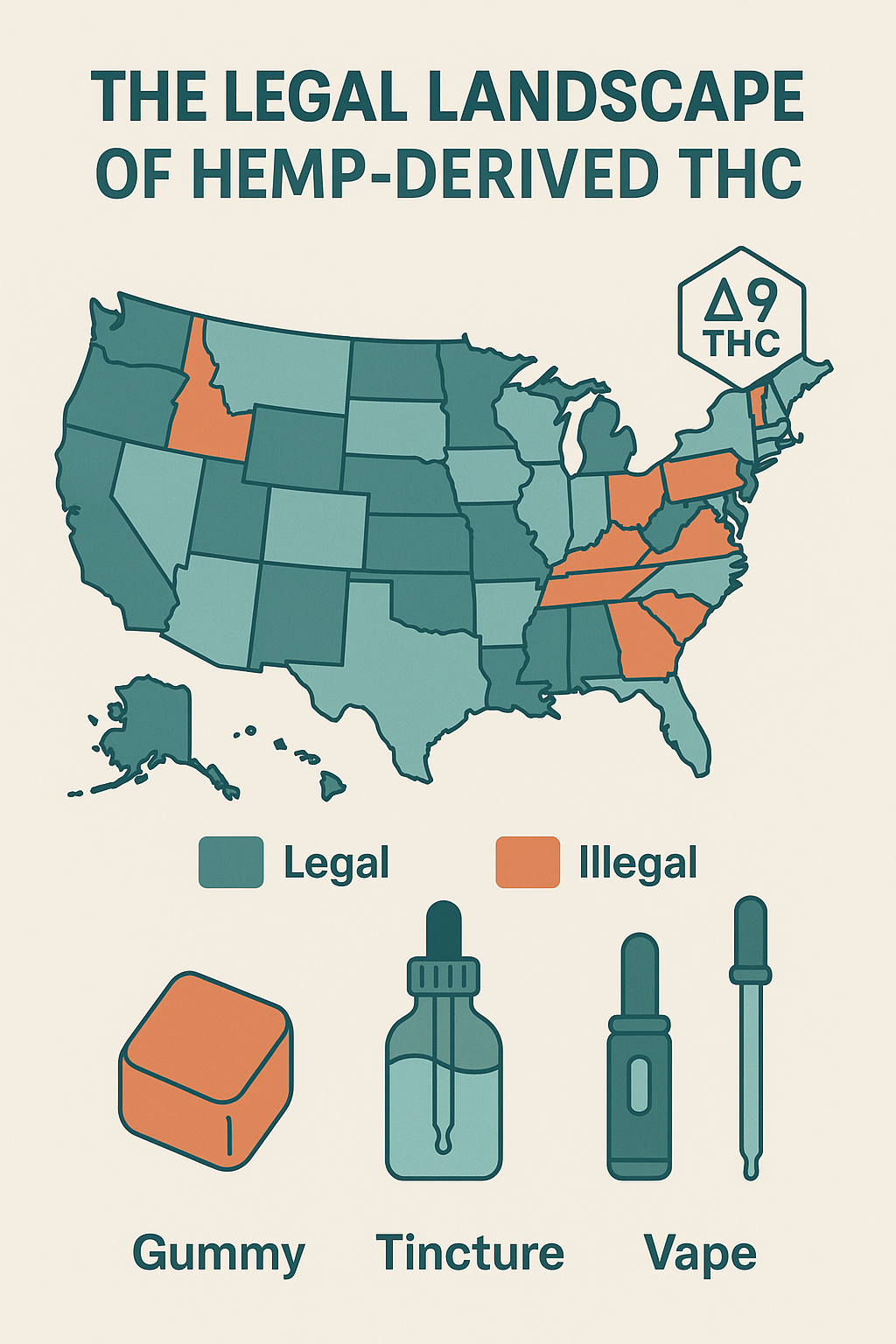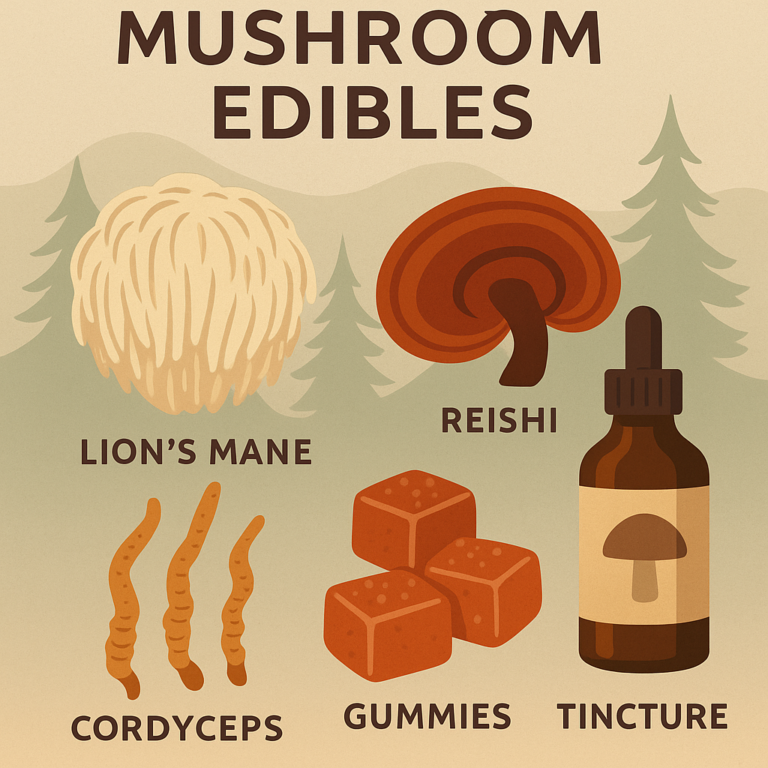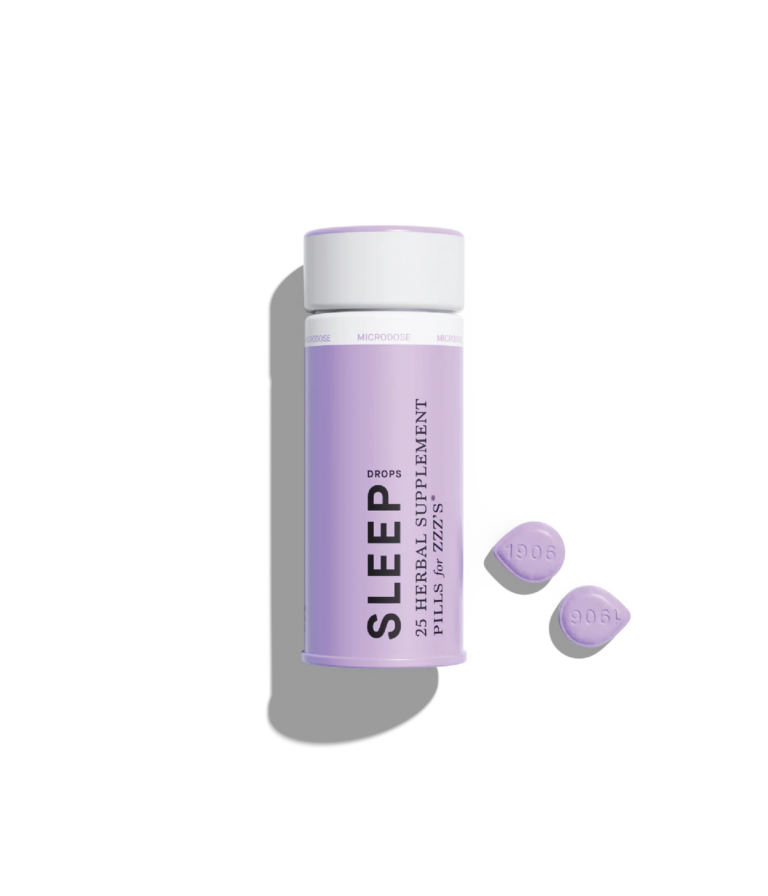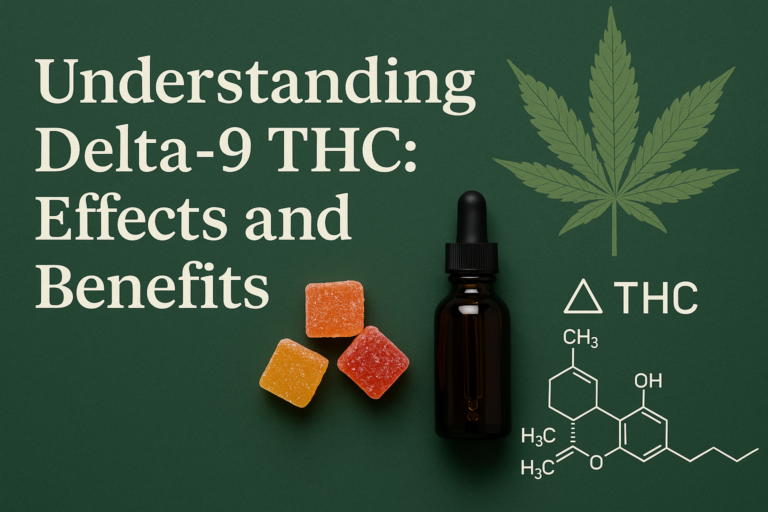The Legal Landscape of Hemp-Derived THC Products
The cannabis conversation has shifted. What was once a binary “legal vs. illegal” debate is now a patchwork of state laws, federal loopholes, and cannabinoid subclasses.
One of the murkiest waters? Hemp-derived Delta-9 THC. It’s legal. Sort of. Depending on where you are, how it’s made, and how much is in your gummy.
Let’s break down the current legal status of hemp-derived THC, so you can shop and consume with confidence—and avoid unintended run-ins with the law.
What Makes THC “Hemp-Derived”?
The 2018 Farm Bill redefined “hemp” as cannabis plants (and their derivatives) containing less than 0.3% Delta-9 THC by dry weight. That’s the federal line in the sand.
- If it tests at or below 0.3% Delta-9 THC = hemp = legal federally
- If it’s over 0.3% = marijuana = still a Schedule I substance
This created a massive gray market: companies began formulating gummies, vapes, and tinctures that stay under the 0.3% threshold per unit, but still deliver potent doses of THC—legally.
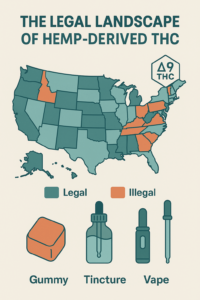
Federally Legal ≠ Legal in Your State
States are not obligated to follow federal guidance. Many have created their own laws regulating hemp-derived cannabinoids.
States Where Hemp-Derived THC Is Generally Legal:
- Texas
- Florida
- Wisconsin
- New Jersey
- Illinois
States That Have Banned or Restricted It:
- Idaho
- South Dakota
- Arkansas
- Colorado (Yes, even CO—specifically bans chemically modified cannabinoids)
Note: Laws change frequently. Always check the latest regulations in your state or locality.
Legal Loopholes: Dry Weight and Product Stacking
One common tactic is “dry weight stacking”: adding THC to a heavy edible (like a cookie) so that the percentage stays under 0.3%, but the total milligrams are high (say, 10–15mg per piece).
This complies with the letter of the law—though some regulators argue it violates its intent.
What About Delta-8 and THCA?
- Delta-8 THC is often synthesized from CBD and occupies an even murkier legal status. Banned in ~20 states.
- THCA is non-psychoactive in raw form but converts to Delta-9 THC when heated. Some states restrict it based on potential, not just content.
How to Stay Compliant as a Consumer
- Always buy from brands that publish third-party lab results (COAs)
- Look for shipping disclaimers—many companies won’t ship to restricted states
- Avoid traveling across state lines with THC products, even if purchased legally
- Bookmark your state’s hemp or cannabis control board for legal updates
Shop Legal, Lab-Tested THC Now
Navigating the legal landscape doesn’t have to slow down your journey.
Explore our curated selection of hemp-derived Delta-9 THC edibles, vapes, tinctures, and more—federally legal, lab-tested, and ready to ship.
Shop Our Legal THC Collection Now
Conclusion
Hemp-derived THC products offer a legal path to cannabis experiences—if you know how to navigate the map. Understand your state’s stance, read the fine print, and always buy from transparent brands.
Legal ≠ risk-free—but it’s a step toward access, freedom, and clarity in the cannabis space.

